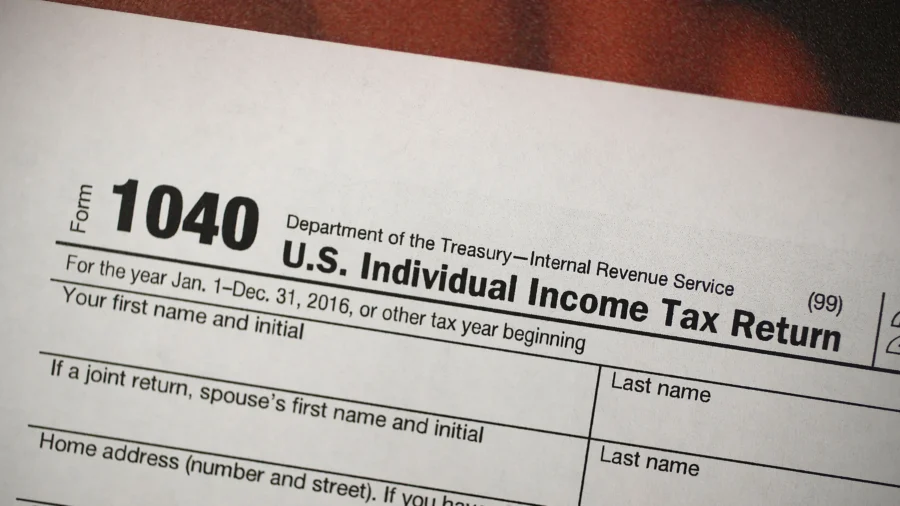Monday, April 15 is the deadline to file federal income tax returns and extensions to the Internal Revenue Service (IRS) for most people.
The IRS said on April 12 that it has received more than 100 million returns, but millions more returns are expected to be filed by the end of April 15.
Taxpayers living in Massachusetts or Maine have an April 17 tax deadline because the two states observe the Patriots’ Day holiday, while Tuesday is the Emancipation Day Holiday, according to the IRS.
“Millions of taxpayers across the nation will be working on their tax returns during the final hours, and people should remember they have many ways to get last-minute help,” IRS Commissioner Danny Werfel said in a release. “We have a variety of free tools on IRS.gov that can help with basic tax law questions, provide free filing options, update refund status and even provide ways to request an extension for more time to file. We’re continuing our expanded special assistance for taxpayers right through the final weekend of tax season with special Saturday hours at 70 locations.”
Taxpayers can get an extra six months to file taxes if they file for an extension by Monday, the IRS said, meaning they will have until Oct. 15 to file their 2024 returns. However, there is no extension on making payments to the IRS, it says, adding that failure to pay by April 15 will result in penalties and interest payments
What Happens When Late?
If you missed the tax deadline and you don’t file for an extension, there are several penalties that you might receive.
If you missed the deadline you might receive a failure-to-file penalty. This penalty will be 5 percent of the unpaid taxes for each month the tax return is late, according to the IRS.
If you owe taxes and you didn’t pay them prior to the tax deadline, you will receive a failure-to-pay penalty. Interest will also be charged on both taxes and penalties owed.
If you are due for a refund, you will not receive a penalty and you will receive your tax return payment. If you had special circumstances that meant you were unable to file or pay your taxes on time, you might be able to remove or reduce your penalty.
If the amount of taxes you owe becomes too large, you can apply for a payment plan. Payment plans will allow you to pay off over time.
You can file taxes late and, if you were supposed to get a refund, you might still get it, according to the agency. If you haven’t filed for years and you owe money to the IRS, you may be hit with penalties but the agency can work with you to manage payment plans.
Use E-File
The IRS also often says that taxpayers should attempt to file their taxes electronically and not use normal mail to avoid receiving a delay in their refund.
“The IRS encourages all taxpayers to file electronically and choose direct deposit to avoid refund delays. Filing on paper can significantly delay a refund,” the IRS said in a recent statement. “Tax software helps individuals steer clear of mistakes by doing the math. It also guides people through each section of their tax return using a question-and-answer format.”
The agency also says that people can use its “Where’s My Refund” tool to obtain a status update after filing their taxes. An update will generally appear about 24 hours after one electronically files their current-year return, it says.
Last week, the IRS said it has received 101.8 million returns and processed 66.8 million refunds as of April 5, according to new data released by the agency last week. The average refund is about $3,011, or a slight increase over the $2,878 that was refunded last year, it said.
Some $201.1 billion in total refunds have been processed by the agency this season, with the vast majority being sent via direct deposits, it said.
The Associated Press contributed to this report.
From The Epoch Times

